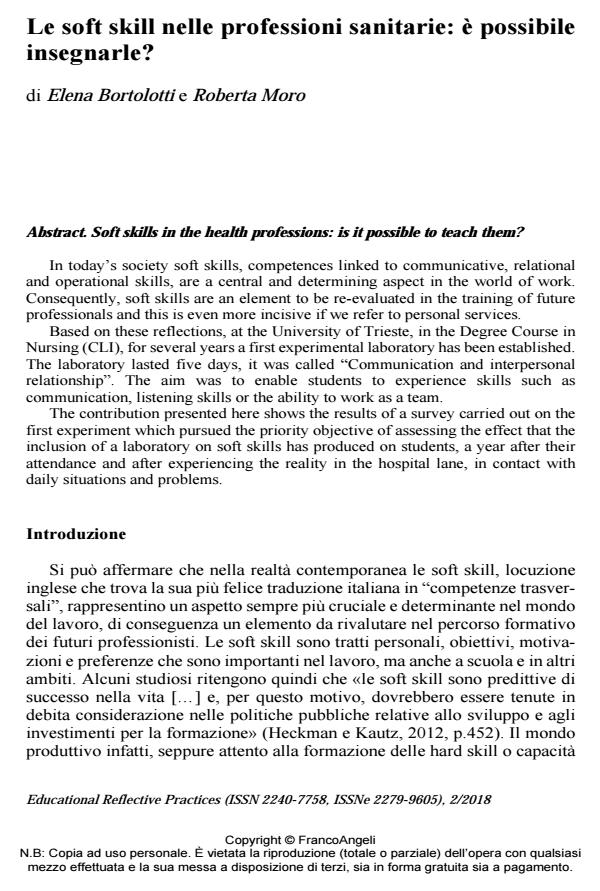Soft skills in the health professions: is it possible to teach them?
Journal title EDUCATIONAL REFLECTIVE PRACTICES
Author/s Elena Bortolotti, Roberta Moro
Publishing Year 2019 Issue 2018/2
Language Italian Pages 15 P. 79-93 File size 185 KB
DOI 10.3280/ERP2018-002006
DOI is like a bar code for intellectual property: to have more infomation
click here
Below, you can see the article first page
If you want to buy this article in PDF format, you can do it, following the instructions to buy download credits

FrancoAngeli is member of Publishers International Linking Association, Inc (PILA), a not-for-profit association which run the CrossRef service enabling links to and from online scholarly content.
In today’s society soft skills, competences linked to communicative, relational and operational skills, are a central and determining aspect in the world of work. Consequently, soft skills are an element to be re-evaluated in the training of future professionals and this is even more incisive if we refer to personal services. Based on these reflections, at the University of Trieste, in the Degree Course in Nursing (CLI), for several years a first experimental laboratory has been estab-lished. The laboratory lasted five days, it was called "Communication and interpersonal relationship". The aim was to enable students to experience skills such as communication, listening skills or the ability to work as a team. The contribution presented here shows the results of a survey carried out on the first experiment which pursued the priority objective of assessing the effect that the inclusion of a laboratory on soft skills has produced on students, a year after their attendance and after experiencing the reality in the hospital lane, in contact with daily situations and problems.
Elena Bortolotti, Roberta Moro, Le soft skill nelle professioni sanitarie: è possibile insegnarle? in "EDUCATIONAL REFLECTIVE PRACTICES" 2/2018, pp 79-93, DOI: 10.3280/ERP2018-002006